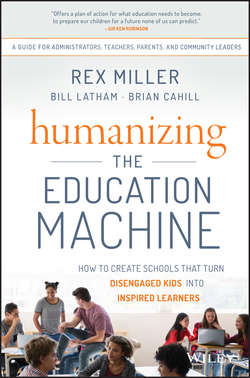Читать книгу Humanizing the Education Machine - Cahill Brian - Страница 11
На сайте Литреса книга снята с продажи.
CHAPTER 1
NUMBERS DON'T LIE
To Humanize the Education Machine
ОглавлениеMost people know that the earth's surface is composed of tectonic plates – “a dozen or so big crustal slabs that float on a sea of melted rock… The colliding plates grind past one another about as fast as fingernails grow..”1 As the plates grow, they break off, creating convulsions of new geologic features. Despite its deadly earthquakes and tsunamis, that process, that revolution, is quite natural and essential to the continuation of life on planet earth.
But isn't it also true that the ideas, values, and structures that form civilizations are in perpetual, grinding revolution? That's how they exchange old and dying forms for new life. The life cycles of the planet exist in continuous, and sometimes quite literal, uprisings. The convulsions of history continually heave old forms over the side, where they slip into oblivion. Of course, individuals, groups, and nations work very hard to find ways to take credit for the upheavals.
This book is a manifesto for a secret, but emerging, revolution.
That revolution is challenging public education's grip over the future and well-being of our kids. We all see the relatively small, but very visible, part of that conflict among policy makers, educators, unions, parents, politicians, and a voracious educational industrial complex. They are all pounding their fists, demanding change, pointing fingers, expanding control, pleading for more funding, and continually changing the rules with no measurable improvement. That war has raged for the past 60 years. Most have fought with good intent; many were and are mercenaries; and some have tried to leverage the dysfunction to gain more power and profit. It doesn't matter; they are all caught in a conflict of irrelevance. It is all part of an era that is passing away.
Today, we all stand before a window of opportunity that recalls Apple's “1984” Super Bowl Ad. That landmark “manifesto” proclaimed the end of Big Brother computing and the dawn of a human-centered experience. As it was then, our highly centralized industrial education system is increasingly arthritic and exhausted. Worse, its death grip is killing creativity – in our kids and in our nation. The mission of this book is to spread hope and methods to parents, educators, administrators, and communities so they may become full partners in the human-centered learning revolution.
Everyone knows the current system is failing to graduate students who are prepared for the demands of the twenty-first century. The United States ranks last among industrialized nations for college graduation levels. Other countries with similar education models are experiencing the same fall out in student engagement and performance. Germany, England, China, Singapore, South Korea, France, Australia, Canada, Japan, and other countries are stepping back and asking the same questions we asked about the effects of their education machines.
Today's oracles, such as Sir Ken Robinson, Tony Wagner, Douglas Thomas, John Seely Brown, and others are painting vividly clear pictures of a harsh system that is killing creativity at the very time in history that most demands creativity and innovation! They are the most important survival skills in a postindustrial world.
The book explains how the “Gutenberg to Google” revolution has generated a perfect storm of discontent, dysfunction, and disengagement in our traditional system of education.
While the policy debates and shifting priorities continue to keep schools off-balance and parents in the dark we have a crisis that won't wait.
This book announces that we stand at a true “Oh, my God” moment in history. The numbers tell a story that can no longer be ignored. In addition to the disengagement numbers already cited, half of all students are considered “at risk.” More than 25 percent of students live in poverty. 1.36 million students are homeless. None of this is a secret. Yet the system cannot or will not budge.
After 60 years of studies, we don't have time for more research, reform measures, or debate. The revolution has already started. It is even now overthrowing an obsolete industrial regime, structure, and set of values.
That's why we need a manifesto, not another proposal. After 60 years of studies, we don't have time for more research, reform measures, or debate. The revolution has already started. It is now overthrowing an obsolete industrial regime, structure, and set of values. That insurgency will reclaim learning as a fundamentally human experience. Gutenberg enabled the first learning revolution more than 500 years ago. Google now symbolizes the new one. Digital technology is disrupting traditional power centers by distributing knowledge to anyone who choses to join this historical opportunity.
1
William J. Broad, “Deadly and Yet Necessary, Quakes Renew the Planet,” New York Times (January 11, 2005), www.nytimes.com/2005/01/11/science/deadly-and-yet-necessary-quakes-renew-the-planet.html? _r=0.
